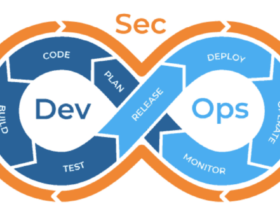The digital landscape is expanding at an unprecedented rate, and with it, the need for robust cybersecurity measures. This growing demand translates into a vibrant job market, making entry level cybersecurity jobs an increasingly attractive career path for individuals eager to enter a dynamic and impactful field. Far from requiring decades of experience, many foundational roles in cybersecurity are accessible to motivated individuals with the right skills, certifications, and a passion for protecting digital assets. This comprehensive guide will explore common entry-level roles, essential skills, valuable certifications, and how to effectively navigate your way into a rewarding cybersecurity career.
The Demand for Cybersecurity Professionals
The constant evolution of cyber threats – from ransomware and phishing to sophisticated state-sponsored attacks – means that organizations across all sectors are prioritizing cybersecurity like never before. This creates a significant talent gap, particularly at the entry level, as companies seek to build out their security teams. Reports from the U.S. Bureau of Labor Statistics project a much faster than average growth for information security analysts, indicating thousands of new job openings each year. This robust job outlook makes it an opportune time to pursue entry level cybersecurity jobs.
Common Entry Level Cybersecurity Roles
While the cybersecurity field is vast, several roles typically serve as excellent starting points for newcomers. These positions often focus on foundational security tasks, allowing you to build practical experience and a deeper understanding of cybersecurity operations.
1. Security Operations Center (SOC) Analyst (Tier 1)
A SOC Analyst is often the first line of defense in an organization’s security posture. Their primary responsibilities include :
- Monitoring security alerts and incidents from various security tools (SIEM, IDS/IPS).
- Investigating suspicious activities to determine if they are legitimate threats.
- Escalating confirmed incidents to higher-tier analysts or incident response teams.
- Documenting security events and incidents.
This role is excellent for building foundational knowledge in threat detection and incident handling.
2. Cybersecurity Analyst (Junior/Associate)
A broader role, a Junior Cybersecurity Analyst assists in protecting an organization’s computer networks and systems. Tasks may include :
- Assisting in vulnerability assessments and penetration testing.
- Helping to implement and maintain security measures.
- Contributing to security policy development.
- Researching emerging cyber threats.
This role provides exposure to a wider range of cybersecurity domains.
3. IT Support Specialist with a Security Focus
While not strictly a cybersecurity role, an IT Support Specialist often deals with security-related issues directly. This can involve :
- Troubleshooting user access problems.
- Assisting with malware removal.
- Implementing basic security configurations on end-user devices.
- Educating users on secure computing practices.
This position can be a fantastic “foot in the door,” allowing you to gain essential IT fundamentals before specializing further in security.
4. Compliance Analyst (Junior)
Organizations must adhere to various industry regulations and standards (e.g., GDPR, HIPAA, PCI DSS). A Junior Compliance Analyst helps ensure these requirements are met by:
- Reviewing security policies and procedures.
- Assisting in security audits.
- Documenting compliance efforts.
- Researching relevant regulations.
This role is ideal for those with strong organizational skills and attention to detail.
5. Network Administrator (with security responsibilities)
Many entry-level network administration roles inherently involve security tasks. Responsibilities may include:
- Configuring firewalls and intrusion detection systems.
- Managing network access controls.
- Monitoring network traffic for anomalies.
- Implementing network segmentation.
A solid understanding of networking fundamentals is crucial for this pathway. For more detailed descriptions of entry-level cybersecurity roles, a great resource is the National Initiative for Cybersecurity Education (NICE) Cybersecurity Workforce Framework, which categorizes and describes cybersecurity work.
Essential Skills for Entry Level Cybersecurity Jobs
To stand out in the competitive landscape of entry level cybersecurity jobs, a combination of technical and soft skills is vital.
Technical Skills :
- Networking Fundamentals : A strong grasp of TCP/IP, routing, switching, and network protocols is fundamental. Understanding how data moves across networks is key to securing it.
- Operating Systems : Proficiency in Windows, Linux, and possibly macOS environments, including command-line interfaces.
- Security Concepts : Knowledge of common attack vectors, malware types, encryption, firewalls, and intrusion detection systems.
- Basic Scripting/Programming : Familiarity with languages like Python or PowerShell can automate tasks and help with analysis.
- Cloud Computing Basics : As more infrastructure moves to the cloud (AWS, Azure, GCP), understanding cloud security principles is increasingly important.
- Vulnerability Assessment Tools : Familiarity with tools like Nmap, Wireshark, or basic vulnerability scanners.
Soft Skills :
- Problem-Solving: The ability to analyze complex issues, identify root causes, and develop effective solutions.
- Critical Thinking: Essential for evaluating threats, assessing risks, and making informed decisions under pressure.
- Communication: Clearly articulating technical concepts to non-technical stakeholders, writing concise reports, and collaborating with teams.
- Attention to Detail: Meticulousness is crucial for identifying subtle anomalies that could indicate a security breach.
- Adaptability and Continuous Learning: The cybersecurity landscape constantly changes, requiring professionals to continuously update their knowledge and skills.
Key Certifications for Entry Level Roles
While a degree can be beneficial, many individuals successfully enter cybersecurity with relevant certifications. These credentials validate your knowledge and demonstrate your commitment to the field.
- CompTIA Security+ : Widely recognized as a foundational certification, it covers core security concepts, threats, vulnerabilities, and security operations. It’s often considered the baseline for many entry level cybersecurity jobs.
- CompTIA Network+ : While not solely security-focused, a strong networking background is crucial for cybersecurity. This certification validates essential networking skills.
- (ISC)² SSCP (Systems Security Certified Practitioner): This certification validates foundational knowledge in seven security domains, including access controls, risk identification, and incident response.
- EC-Council Certified Ethical Hacker (CEH) (Associate Level): For those interested in penetration testing or ethical hacking, an associate-level CEH can provide a strong introduction to offensive security techniques.
- GIAC GSEC (GIAC Security Essentials Certification): A more advanced entry-level certification, it validates hands-on skills in security fundamentals.
Choosing the right certification depends on your specific career interests. Many professionals start with Security+ and then specialize. For a comprehensive overview of cybersecurity certifications, including those for entry-level roles, a good resource is Cybersecurity Certifications by CompTIA.
Gaining Experience Without a Formal Job
Landing your first entry level cybersecurity job can feel like a “chicken and egg” problem: you need experience to get a job, but you need a job to get experience. Here’s how to break that cycle:
- Build a Home Lab : Set up virtual machines (VMs) with different operating systems (Linux, Windows Server), install security tools, and practice common cybersecurity tasks like network scanning, vulnerability analysis, or setting up firewalls.
- Capture the Flag (CTF) Competitions : Participate in online CTF events. These challenges provide hands-on experience in various cybersecurity disciplines like forensics, reverse engineering, and web exploitation.
- Online Courses and Bootcamps : Many platforms offer hands-on labs and projects as part of their cybersecurity courses.
- Volunteer Work : Look for opportunities to provide cybersecurity assistance to non-profits or small businesses. This can provide real-world experience.
- Internships : Seek out cybersecurity internships. Even unpaid internships can provide invaluable experience and networking opportunities.
- Contribute to Open-Source Projects : If you have programming skills, contribute to open-source security tools or projects.
- Document Your Learning : Create a blog or a GitHub repository to showcase your projects, CTF write-ups, and what you’ve learned. This serves as a practical portfolio for potential employers.
Navigating the Job Search and Beyond
Once you’ve acquired foundational skills and certifications, tailor your resume and cover letter to highlight these strengths. Network with professionals in the field through LinkedIn, industry events, and local meetups. Be prepared for technical interviews that may include practical exercises or scenario-based questions.
The journey into entry level cybersecurity jobs is a continuous learning process. The field is constantly evolving, so staying updated on the latest threats, technologies, and best practices is crucial for long-term success. Embrace challenges as learning opportunities and cultivate a mindset of perpetual curiosity.
The demand for cybersecurity talent means that entry level cybersecurity jobs are more accessible than ever for those willing to invest in their education and practical skills. By focusing on foundational roles, acquiring relevant certifications, and actively building hands-on experience, you can confidently step into this critical and rewarding profession. The digital world needs its guardians, and your journey into cybersecurity can begin today.
Ready to explore more about building a successful career in technology? Check out our other career guides and tech insights at JURNALIN.









